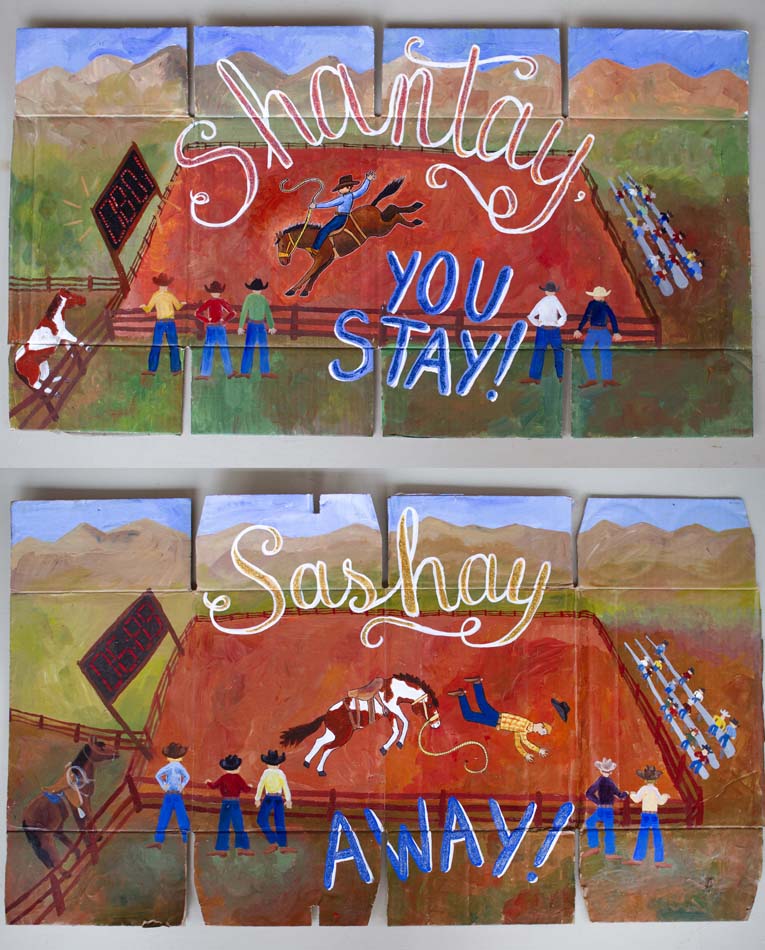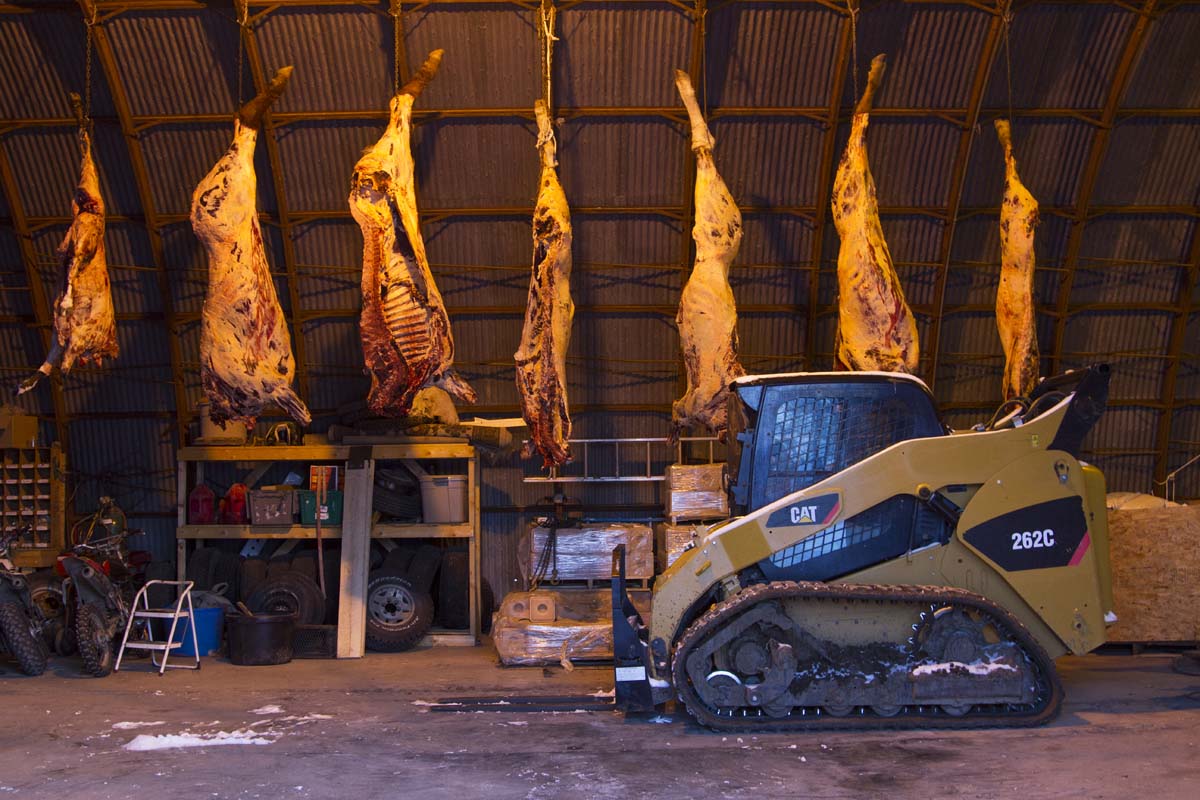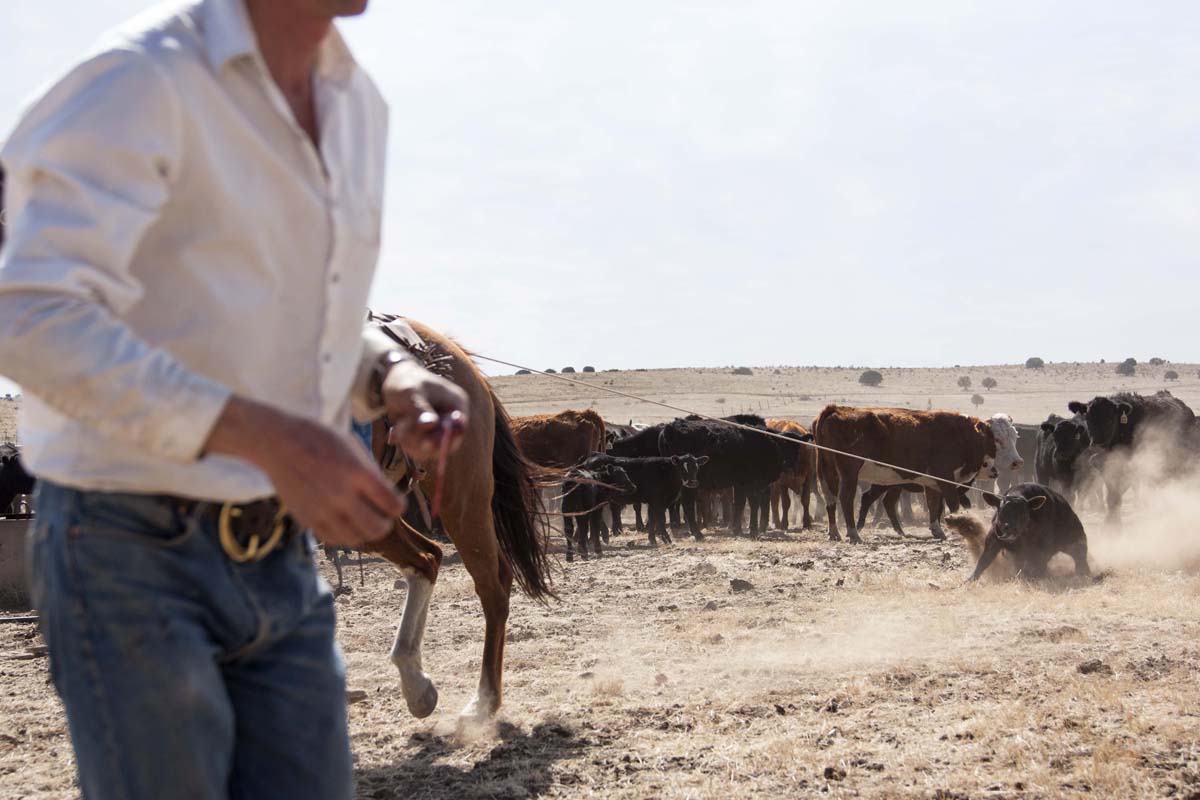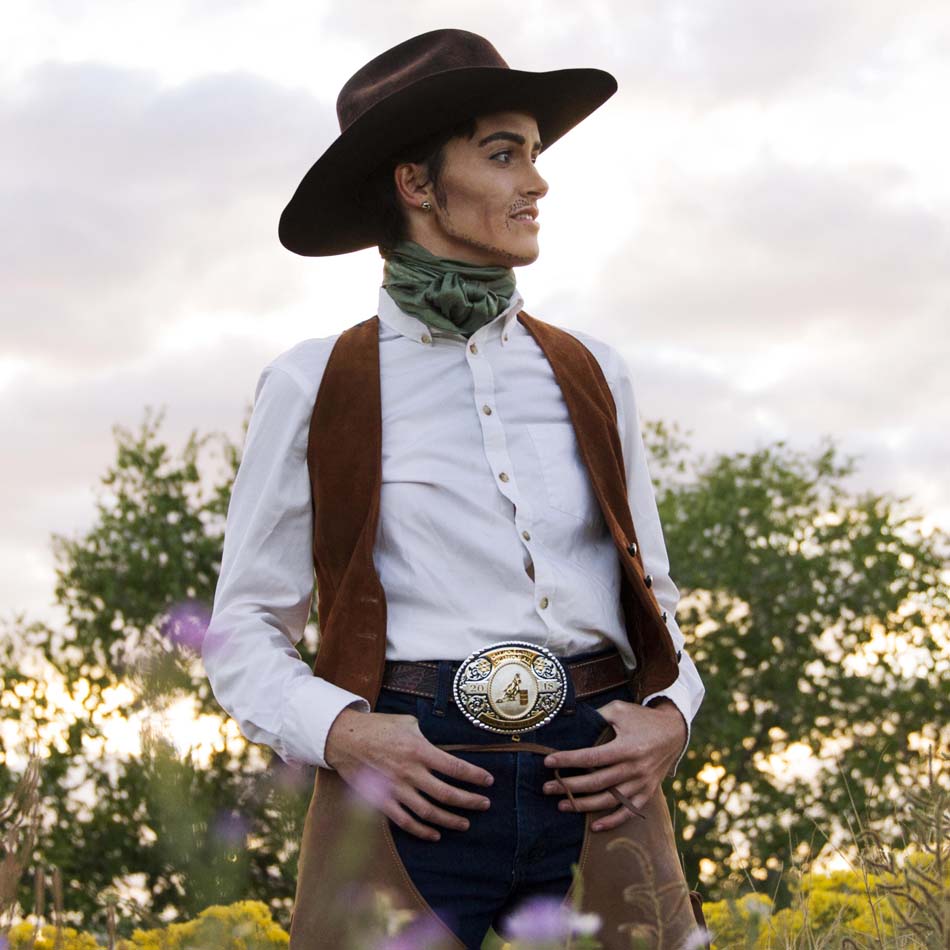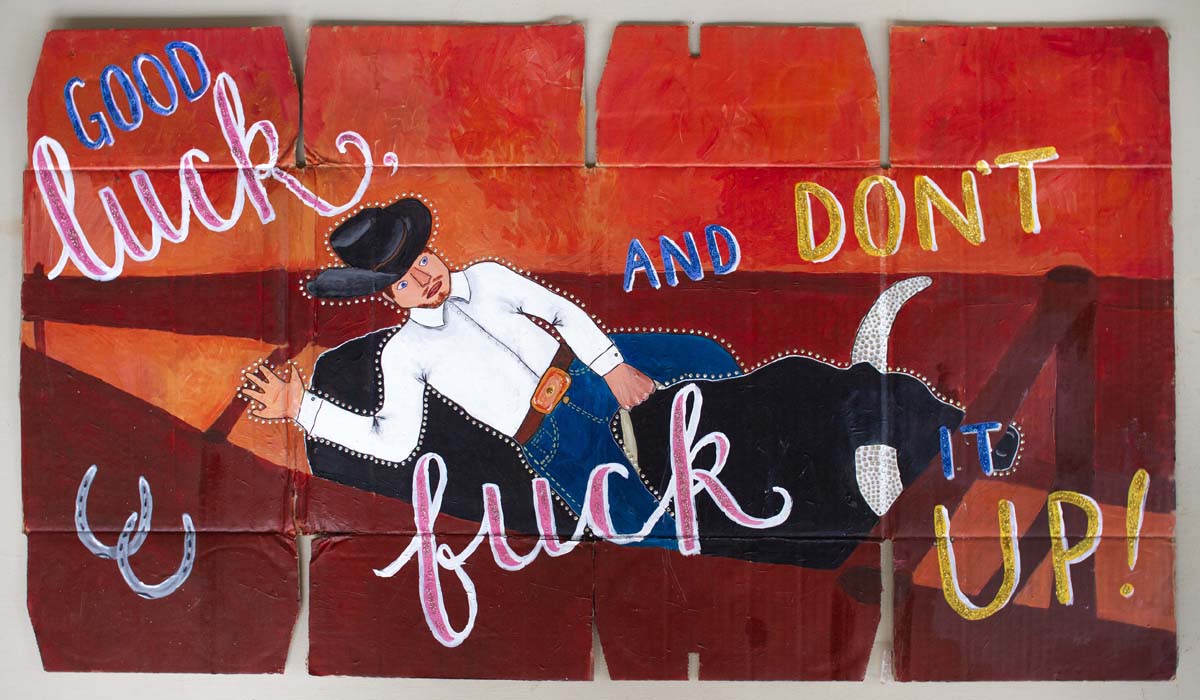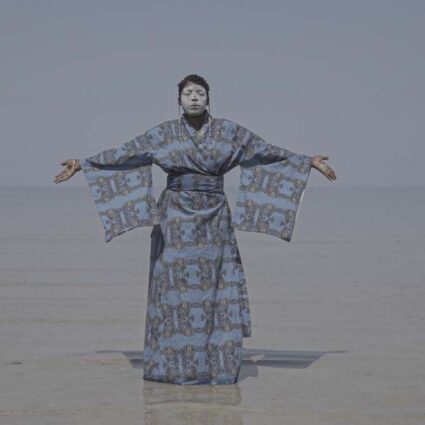Multimedia artist Luca Berkley (AKA Jack Lope, Jenn Deere, and Piper Pelligrini) critiques narratives surrounding American ranching through performance, online as well as on stage.

Albuquerque, New Mexico | lucamaudeberkley.com | @jacklope.etc
Central to Luca Berkley’s multidisciplinary practice is their obsessive love for, yet persistent skepticism toward, white cowboy culture. Their ever-evolving alter egos (the artist uses they/them pronouns)—Jack Lope, Jenn Deere, and Piper Pelligrini—are artworks that, in Berkley’s words, “critique, mimic, and ridicule the sociocultural mores of the American ranching West.” Principal among these personas is “America’s #1 Cowboy” Jack Lope, whose immaculately sculpted mustache, bedazzled fringe suits, and hyperbolic gospel of Western ranching heritage have graced nearly every Albuquerque queer space.
While Jack Lope is the primary in-person performer of the character trio, each persona occupies an elaborate world built from classic drag techniques and online identity-production tools. Replicating the numerous labors involved in performing personhood under advanced capitalism, Berkley’s characters are an amalgam of not only transformative makeup and costuming, custom audio and video mixing, storytelling, lip syncing, and dance, but also Instagram and TikTok profiles, e-commerce pages, and personal websites. Jenn Deere, for example, is an ongoing performance on Instagram, TikTok, and an e-commerce website that is both deliberately normal-looking (think: another white woman on the internet in cowboy boots fussing with her conspicuously blonde hair while hawking overpriced, handmade wares), yet covertly revealing of some of the most insidious myths in the American cultural imagination.
A critical viewer (perhaps clued into the joke by one of the more absurd posts like “Jenn’s Nightmare”) will spot clear connections in Deere’s calculatedly un-self-aware monologues between gender performance and labor exploitation, cultural appropriation and land seizure, and religious dogma and white nationalism. However, much of Deere’s online presence forms a pastiche of personhood so subtle, you could easily swipe past without registering the performance. Similarly, Piper Pelligrini’s online identity is almost unclockable as parody. This artistic choice makes these personas all the more effective as windows into the legion of online users they resemble, as well as the oppressive assumptions baked into the white cowboy aesthetics they all strive to perform.

